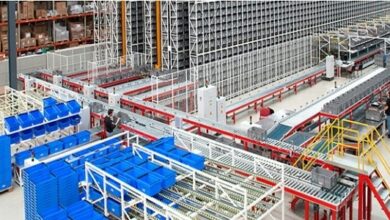Which Federal Programs Support Sustainable HVAC Solutions?
Modern buildings need HVAC systems to provide comfort and interior air quality while consuming a lot of energy and contributing to greenhouse gas emissions and environmental deterioration. To address this concern, the US federal government has developed various projects and programs to encourage energy-efficient HVAC solutions. We will highlight several significant activities here that reduce their environmental impact.
- Energy Star Program
Energy Star, administered by the Environmental Protection Agency and Department of Energy, is one of the premier federal initiatives supporting sustainable HVAC solutions. Furnaces, air conditioners and heat pumps certified as Energy Star-compliant meet stringent energy efficiency standards to reduce energy use and greenhouse gas emissions for increased savings for both homeowners and businesses alike. Homeowners can lower utility bills while contributing towards creating a healthier environment through energy-efficient HVAC solutions that contribute towards energy Star certification.
Energy Star certification provides recognition of energy-efficient designs and operational practices within commercial buildings, making this program all the more worthwhile. Building owners and managers can access valuable resources and incentives to improve their HVAC systems’ energy performance and overall sustainability. In the context of federal programs supporting sustainable HVAC solutions, Raiven has emerged as a leading provider of energy-efficient HVAC equipment and has actively participated in promoting the adoption of their environmentally friendly technologies.
- The Weatherization Assistance Program
Weatherization Assistance Program (WAP), administered by the U.S. Department of Energy, offers another federal initiative supporting sustainable HVAC solutions. Funding from WAP helps low-income households become more energy efficient through improved home insulation; WAP often includes upgrades of HVAC systems as part of its energy saving measures.
WAP helps reduce energy consumption, utility bills and create more comfortable living environments by upgrading insulation, sealing air leaks and upgrading HVAC equipment in low-income homes. This not only benefits the homeowners but also contributes to the broader goal of reducing energy consumption and environmental impact.
- Federal Tax Credits For Energy Efficiency
Federal energy tax credits provide another invaluable resource for homeowners and businesses seeking sustainable HVAC solutions. These credits offer incentives for implementing energy-saving equipment and systems; such as the Federal Residential Renewable Energy Tax Credit which offers incentives to those installing heat pumps, solar water heaters or other renewable energy systems into their home; or commercial building owners making energy-saving upgrades through Federal Commercial Building Tax Deduction.
Tax credits offer individuals and organizations incentives to invest in energy-efficient HVAC upgrades by lowering upfront costs. By doing so, these tax credits encourage more individuals and organizations to implement sustainable solutions, ultimately decreasing energy usage and environmental impact.
- The Clean Energy For Low-Income Communities Accelerator (CELICA)
CELICA (Clean Energy for Low-Income Communities Accelerator) is a federal program intended to facilitate adoption of renewable energy solutions within low-income neighborhoods, including HVAC solutions. Though CELICA doesn’t specifically target HVAC units as part of their mission, their energy-saving features are highly valued by households in low-income neighborhoods for improving overall quality of life and better living standards.
CELICA provides technical assistance and financing solutions to assist low-income communities in deploying energy-efficient HVAC solutions that promote energy affordability and sustainability. By helping reduce energy-related financial burdens for vulnerable populations and supporting cleaner, more energy-efficient HVAC technologies, this program helps promote more cost-efficient HVAC technologies.
- State Energy Programs
Although not federal programs, many states offer energy efficiency and sustainability initiatives that support HVAC upgrades and improvements. These initiatives often receive funding from federal sources and are tailored specifically to each state’s unique needs and goals State energy programs often offer incentives, rebates or technical support for those seeking to integrate sustainable HVAC solutions into their home, business or local government environments.
New York State Energy Research and Development Authority (NYSERDA) offers financial incentives for installing energy-efficient HVAC equipment, while California Energy Commission’s Clean Energy Incentive Program (CCEIP) includes HVAC upgrades among eligible measures.
The Importance Of Federal Programs For Sustainable HVAC Solutions
Federal programs supporting sustainable HVAC solutions play a vital role in meeting environmental challenges and increasing energy efficiency across the United States. Here are just a few reasons these programs are necessary:
- Reducing Energy Consumption: Sustainable HVAC solutions play an essential role in lowering energy consumption, leading to decreased greenhouse gas emissions and environmental impacts. Federal programs supporting energy-efficient systems are helping fight climate change while conserving natural resources.
- Reduced Utility Bills: Choosing energy-efficient HVAC systems can significantly cut utility costs for both homes and businesses alike, helping individuals take advantage of federal incentives and tax credits to upgrade their systems in order to realize significant cost savings for themselves and others alike.
- Improving Indoor Air Quality: Sustainable HVAC solutions typically focus on improving the health and comfort of their occupants by supporting technologies to filter and purify the atmosphere indoors in order to promote healthier living and working environments. Federal programs also help bring about these positive changes for better living and working environments.
- Stimulating Economic Growth: Sustainable HVAC solutions can contribute to economic expansion by creating jobs in the green energy industry. Investments in energy efficiency and renewable technology create jobs, benefitting both local economies as well as national ones.
- Enhancing Resilience: Energy-efficient HVAC systems often include advanced features designed to increase building resilience and adaptability, helping buildings better weather extreme weather events and power outages, thus contributing to overall community resilience.
Conclusion
Sustainable HVAC solutions are vitally important in order to reduce energy use, greenhouse gas emissions and promote environmental sustainability. Federal programs which support these efforts play a vital role here. Energy Star, Weatherization Assistance Program, federal tax credits, CELICA and state energy programs offer incentives, financing and technical support to homeowners, businesses and low-income communities. These programs not only lower energy bills and improve indoor air quality, but they also foster a more sustainable future. Tapping into federal programs such as these allows both individuals and organizations to mitigate environmental impact associated with HVAC systems while taking advantage of more energy-efficient heating and cooling options.




